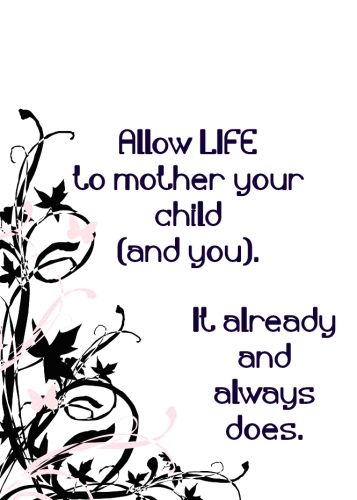-
The Seaweed on the Pillow, a fairy tale for enlightenment
-
The Sheep who Preferred Sane Company, a fairy tale for enlightenment
It’s been a long day at market, but you’re home safe with curds and cream, salt bacon, and a cake of oats. There will be no hunger tonight. Be glad! Rest with good food and drink by the hearth. As a quiet rain arrives and wolves begin to howl, the crone stretches gnarled fingers toward the fire. She’s ready to tell her tiny tale, so open your heart and mind and find what meaning you will.

There was a widow who tended sheep on a mountainside above an aged village. Rarely did she descend from the mountain as all the village women did despise her. There was good reason for this, and not good reason, as is almost always the case with hard feelings cast like dark spells.
Our widow spent day after day, year after year, remembering bad things which had been said about her. She could not help herself. Though she promised the herd in her care to think no more of things which made her sick inside, the sheep nevertheless did find their gentle selves subjected to her angry arguments with persons unseen. This confused the wooly creatures to no end. Not only that. The sheep grazed sheepishly, unnerved by the widow’s red-faced shame when she fell silent at last. Which was not often.
And so, the sheep did whisper wisdom to the widow one night as she slept. For sheep know well of apology and needing the approval of no being.
The next morning the widow did wake and for once without thinking, hiked down to the village. There she approached the village women whom she knew she had offended in days long gone but not forgotten. Our widow surprised herself. She made apology to the women for her shortcomings, and when they unloaded their ugly opinions of her to her face, she did not resist.
She did not resist.
After this, the village women considered, privately, in each her own way, the matter of the widow.
As for our widow, she walked and did live thereafter with great ease, marveling at the sharp outline of mountain peaks and the soft petals of flowers. When she looked down upon the village and saw the women there, she bore them no ill will. For she understood they suffered enough with the thoughts in their heads, as she would sometimes still do. In this she and they were the same.
The same.
And as for the sheep? No longer were they forced to endure the widow’s insanity. Instead, they did graze beside her in peaceful quiet, delighting in her company.
Heaven on earth is like this.
Perhaps you may wonder…
If there are those who still hold fast to hard feelings for you, even after your sincere attempt to reach out, to apologize—then what?
That is none of your business. It’s theirs. Do you understand? Let them be.
This is your business: Each day make peace as best you can—without judging others or assuming you know who they really are—as you practice being a beneficial presence in the world.
Staying in your own business makes life ever so easier. And good.
-
The Nun Who Allowed Bad Things to Happen, a fairy tale for enlightenment
Whispered songs of long ago rattle trees ’til they drop their leaves and sleep. Dark days come, the season of storytelling to pass the time. Shutter the windows and come by the fire. The crone is wrapped in her shawl and ready to tell her tiny tale, so open your mind and heart and find what meaning you will.

There once was a nun who loved God but secretly longed for a life she believed could never be hers.
It so happened one day that as she tended garden in her abbey, a traveling minstrel did sing her a song in exchange for carrots and onions. The nun cried abundant tears at his song of far-flung lands and courtly love.
The minstrel, for his part, fell in love with the nun and suggested this: “Leave behind your life for God and marry me, for you are beautiful and I am lonely.” The nun cried anew for she did love God. Still, the two married the very next day.
Soon enough, the nun-wife knew she had made a mistake. The world was not safe. She saw men abuse their wives (though hers did not, praise God). She witnessed the murder of innocents for their meager purses, and the suffering of children who did starve in their filth.
The nun-wife begged to return to the safety of the abbey. But it was too late, too late. For her minstrel-husband did love her and would not give her up.
Plague arrived and swept the countryside. “Lord God,” the nun-wife prayed in horror, “why do you allow such suffering? Is it because we sin? Is it punishment for our lack of faith? I cannot bear it. Please, help me understand, or else how can I love you?”
She survived the plague. Her minstrel-husband did not, and so she burned his poor body. After this, the nun-wife-widow felt angry and in fear all the time, for she knew God could not be trusted in the end. The world was not safe. It was then she gave up all hope of happiness and peace.
In despair, she found work as a servant and accepted earthly life exactly as it was, without hoping it could be anything different.
A strange thing happened.
The nun-wife-widow often found herself in wonder over a singing bird. A blanket in winter. The taste of onion soup. Such ordinary things delighted her as they never had before.
And when she came upon a man abusing his wife, she did befriend the woman and sing her the minstrel-husband’s songs. She walked without fear along mud roads beloved by thieves, noticing the flowers. When she laid eyes upon starving and filthy children, she did what she could, chasing them to the river to wash and sharing food from her garden.
Years later, plague came again, and the nun-wife-widow lay at the edge of death. She was not angry. She was not afraid. For by this time she was quite practiced at expecting nothing to be different than how it was. She was quite willing to open her eyes and choose a good purpose for whatever came upon her.
Her eyes were open as she died, and when she saw God, she saw herself.
Heaven on earth is like this.
So. Why does God allow suffering? Well, find out. You allow suffering to be, and see what happens.
In this story there’s no answer to why bad things happen. Instead, the nun-wife-widow inadvertently emulates her God: She allows. To be clear: SHE ACCEPTS REALITY.
Humans desperately try to control life and thus expect God to be about the same business. No matter this desire to be in control delivers neurosis rather than peace. Really think on this. What happens when you believe you need to take control and make something be different than it is? How does it feel?
Can you see the insanity of insisting reality not be what it is? Small wonder well-meaning people are drowning in stress.
Notice that when the nun-wife-widow surrenders to reality, her relationship to the world is brand new. She’s born again. And notice she doesn’t disengage and sit in a useless heap, all uncaring about anything.
On the contrary, she quite naturally does what comes to her to do.
‘And it was good.’ (Mysterious, isn’t it?)
-
The Journey for a Daughter, Wine, & Figs, a fairy tale for enlightenment
The hearty stew simmering on the stove isn’t quite ready. Sneak a molasses cookie and come by the fire. There’s time enough for the crone to tell a tiny tale, so open your mind and heart and find what meaning you will.

A barren woman begged God to give her a child. That night she dreamed of a small boy with her husband’s features playing alongside a river flowing with wine and figs. “I must find this river,” she declared upon waking. “It is there I will be a mother at last!”
Her husband readily agreed to leave their home in search of flowing wine and figs. “Where is this river?” they demanded to know of everyone they met on their journey. People believed the woman and her husband to be mad and offered them bread to eat and tonics to drink.
Years passed.
One chill autumn morning, it all became too much. “I will never have my daughter!” the barren woman wailed. “Why does God abandon me?” With these last words, the pain in her heart was so great she fell stone cold dead.
The husband railed against God as well. “No flowing wine and figs! Why is God so cruel as to make this promise and not keep it?” With these last words, he clutched his chest and fell stone cold dead as well.
After three days the woman woke to cooing doves and a clear sky. “Let us go home,” she told her husband, shaking him awake. “Let things be as they are. Our seeking is ended!” With these last words, she was born again, and her husband as well. They returned to their village where they laughed with friends over what they had done.
Heaven on earth is like this.






